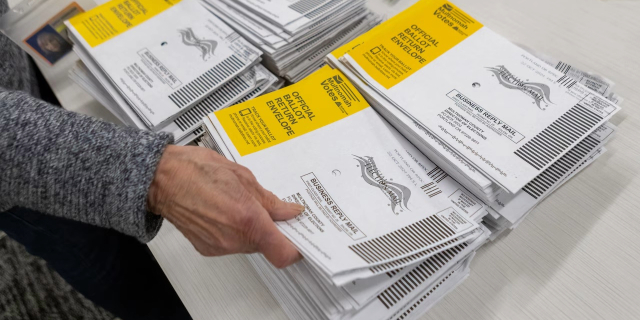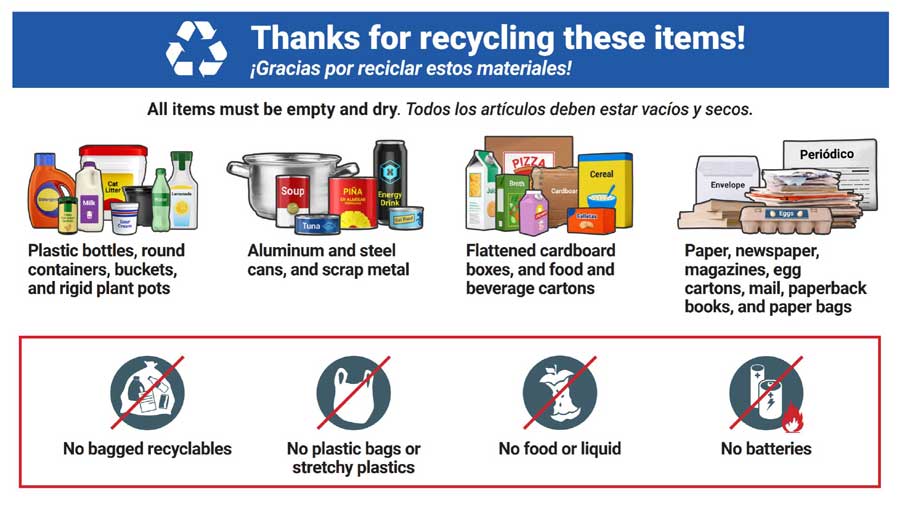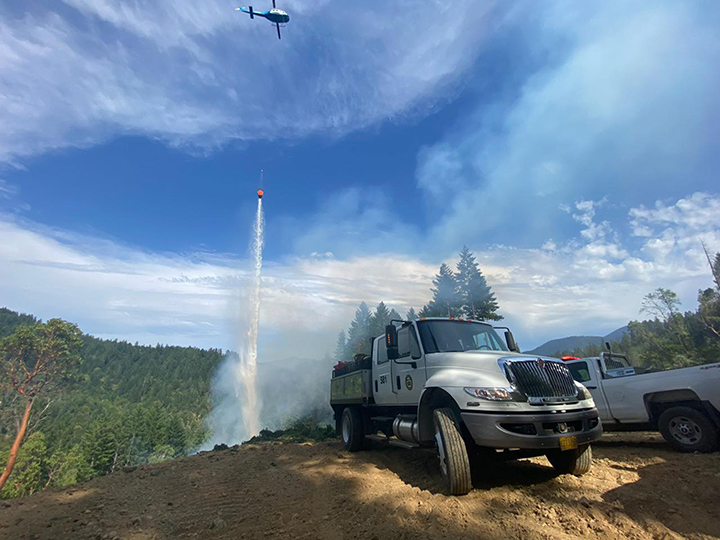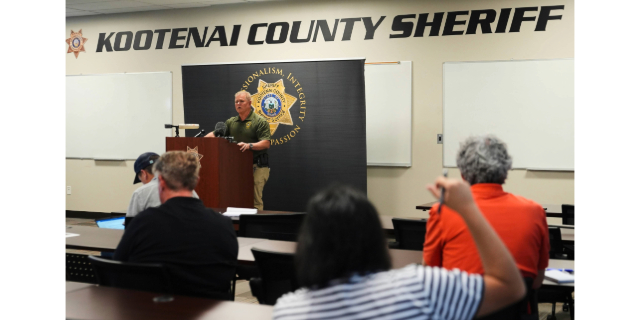Oregon officials say Trump’s voting executive order likely to face legal challenges
Published 9:36 am Wednesday, March 26, 2025

- Official ballot return envelopes are stacked at the Multnomah County Elections Office in Southeast Portland on Oct. 24, 2024. Sean Meagher/The Oregonian
President Donald Trump signed a far-reaching executive order Tuesday that would require individuals to provide proof of citizenship to register to vote and prevent states like Oregon from counting mail-in ballots received after election day.
Oregon officials are analyzing how specific provisions in the order would impact voting here. But Secretary of State Tobias Read, whose office oversees Oregon elections, said the fundamental aim of Trump’s order was to make it more difficult for people to vote. He said it was almost certain to be challenged, either by Oregon or other states.
“We know voter ID laws have a pretty chilling impact on voter registration,” including inequitable impacts on communities of color and others, he said in an interview Tuesday. Oregon is a national leader in voter turnout, he added, “but what worries me is that we should be trying to make it more convenient for people to vote.”
Likewise, Attorney General Dan Rayfield said in an emailed statement that “if President Trump or anyone else takes action that threatens the integrity of how we vote in Oregon, we will use all the legal tools we have to defend our state’s values and elections.”
Trump has a long history of railing against election validity and fairness. He often claims elections are being rigged, even before the results are known, and has waged battles against certain voting methods since he lost the 2020 election to Democrat Joe Biden and falsely blamed it on widespread fraud.
The U.S. Constitution gives states authority over elections. While Congress has the power to regulate voting — and has done so to pass such laws as the Voting Rights Act — the Constitution makes clear that states have primary authority to set the “times, places and manner” for elections.
Oregon has been a national leader in getting out the vote since it established vote-by-mail as the standard mechanism for voting in 1996. The measure has proven popular among voters and led to some of the highest voter turnout rates in the country. In 2024, turnout was 75% of the 3.1 million eligible voters in the November election, according to figures compiled by the Secretary of State’s Office.
Oregon was also the first state to adopt automatic voter registration when Gov. Kate Brown signed the Motor Voter Act in 2015, which led to a surge in voter registrations.
Read said the vast majority of Oregon voters register under to vote under that automatic registration option at the DMV. The law makes voter registration automatic when eligible unregistered voters visit the Department of Motor Vehicles to apply for, renew or replace an Oregon driver’s license, ID card or permit. Eligible Individuals are already required to provide documentation to demonstrate they are U.S. citizens.
But that program has not been without missteps.
It was suspended in October 2024 after errors led DMV employees to improperly register about 1,600 people to vote, including individuals who had no documentation proving citizenship or showed foreign passports. Only a handful of people were found to have voted after being improperly registered and the program was reinstated in February after DMV put steps in place to eliminate the errors.
Oregon Republicans introduced a bill this year that would require Read’s office to verify the documentation that the DMV and the Oregon Health Authority use to confirm citizenship before voters are added to the rolls.
A separate bill was introduced to eliminate automatic voter registration altogether. Neither bill has received a vote in the House Committee on Rules, and it’s not clear that Republicans have any hope of passing them given Democrats’ grip on the Legislature.
Voters can also register online with the Secretary of State’s My Vote site. That system typically requires a valid Oregon Driver’s license permit or ID number, though individuals can provide other forms of identification and self-attest to their citizenship.
“There is no evidence of active fraud in that sense or use of that mechanism,” Read said. His office did not respond to questions about the percentage of voters registering at the DMV versus online.
The president’s directive also orders the U.S. attorney general to take action against states that accept absentee or mail-in ballots after Election Day in their final tabulation of votes for president and members of Congress. It also directs the Election Assistance Committee to block election funding for states that don’t set a ballot receipt deadline on Election Day.
Currently, 18 states and Puerto Rico accept mailed ballots received after Election Day as long they are postmarked on or before that date, according to the National Conference of State Legislatures. Oregon requires ballots to be received within seven days of the election if they are postmarked on or before Election Day.
State figures show that there were 12,964 ballots received in the seven days after the general election on Nov. 5. That was about 0.6% of the 2.3 million ballots cast. Kamala Harris won 55% of the presidential vote in Oregon, versus 41% for Trump.
The order’s documentary proof of citizenship requirement signals that the president is not waiting for congressional Republicans to pass their long-anticipated Safeguard American Voter Eligibility Act, or SAVE Act, which has aimed to do the same thing.
Republicans have defended that measure as necessary to restore public confidence in elections. Voting in federal elections by noncitizens is already illegal and can result in felony charges and deportation.
Voting rights groups have expressed concerns that the requirement could disenfranchise people. An estimated 9% of U.S. citizens of voting age, or 21.3 million people, do not have proof of citizenship readily available, according to a 2023 report by the Brennan Center for Justice and other groups.
There are also concerns that married women who have changed their names will encounter trouble when trying to register to vote because their birth certificates list their maiden names.
Barbara Klein, the acting president of the League of Women Voters Oregon, said the organization is confident that elections administrators in Oregon abide by the rules and that the state’s vote-by-mail system is secure and beneficial for all voting residents.
“We have every confidence that our current system provides for all Oregon voters,” she said in an email. “Further, we strongly believe that voters do not need MORE obstacles in having their voices heard.”










